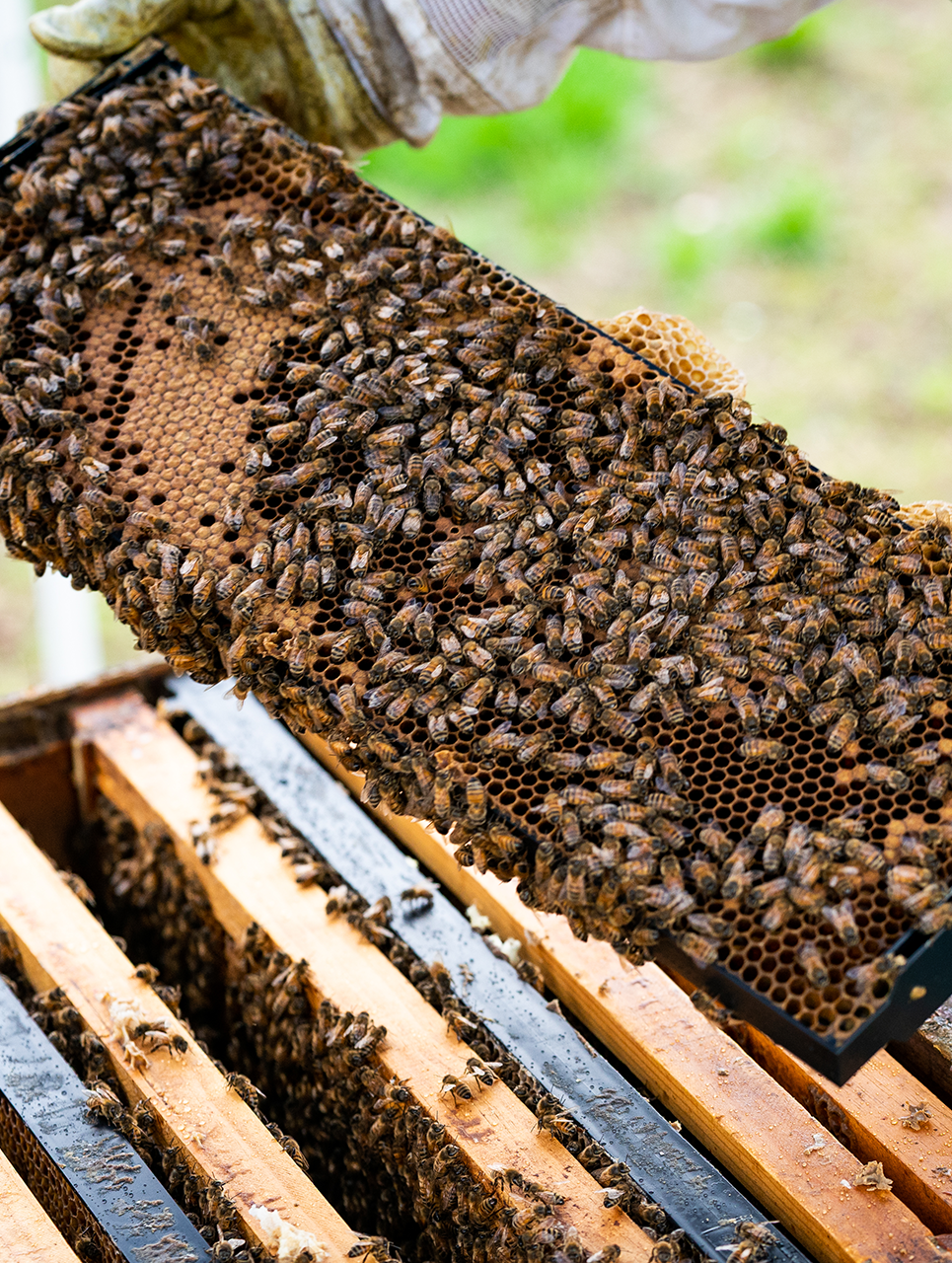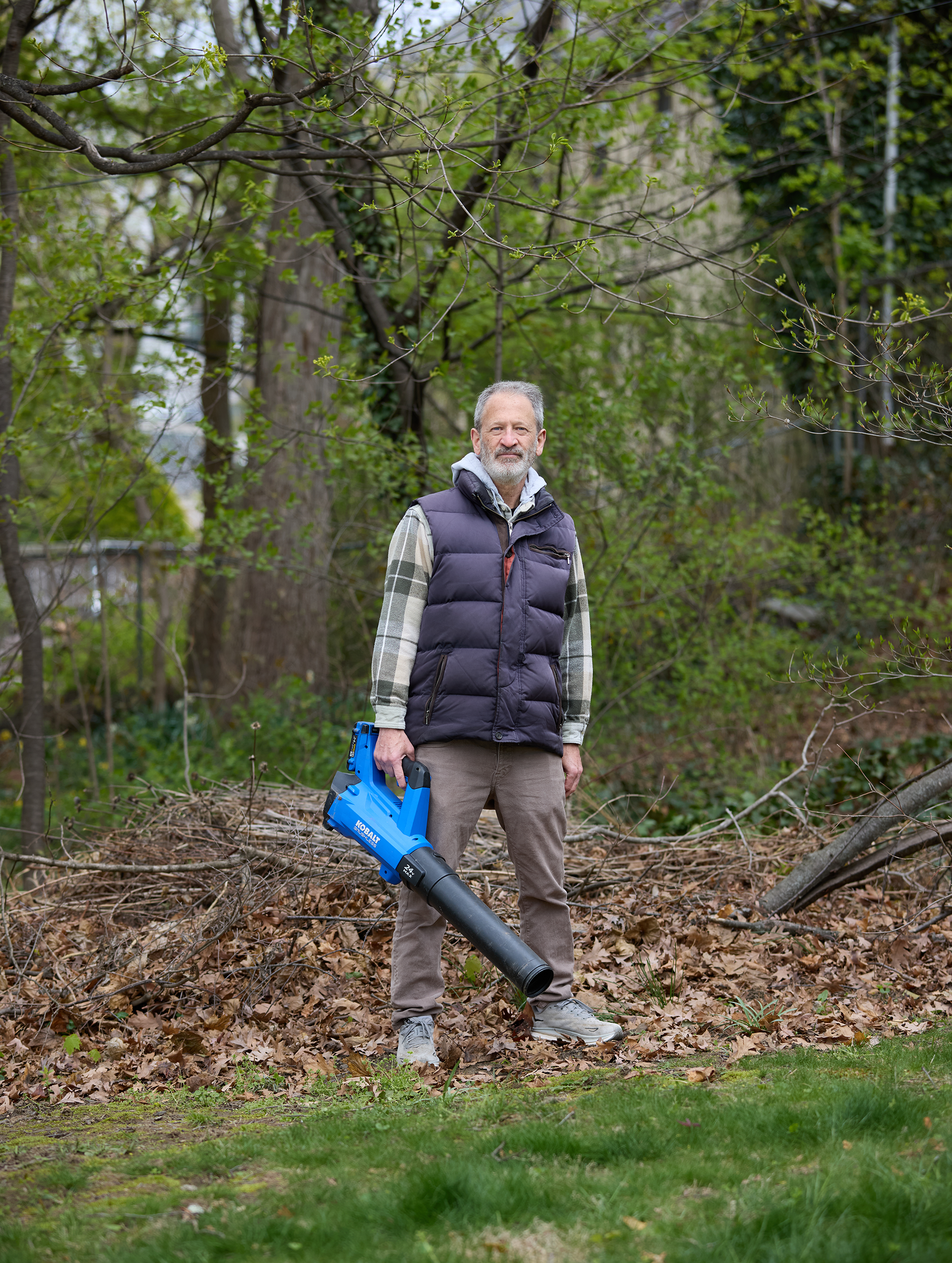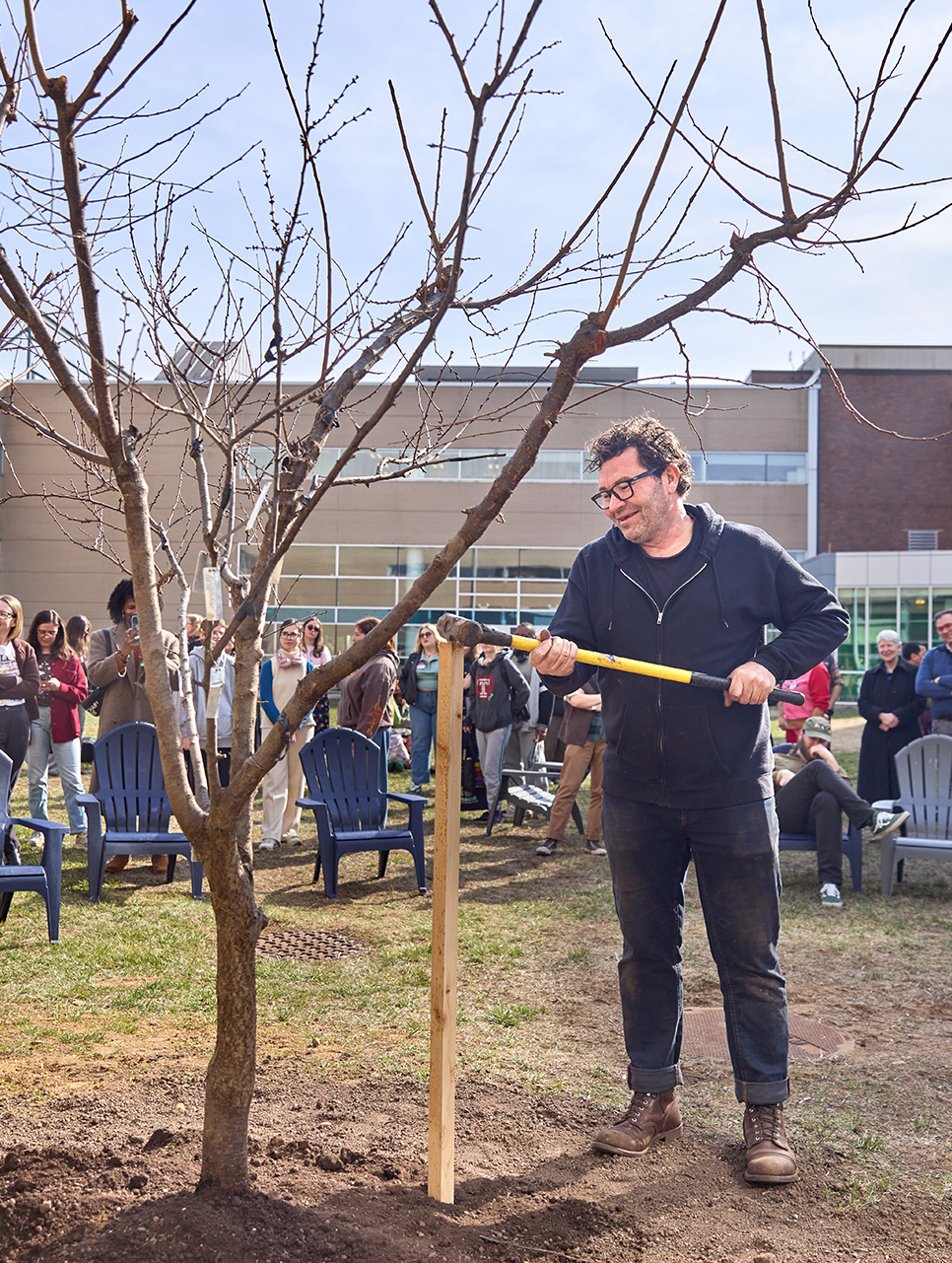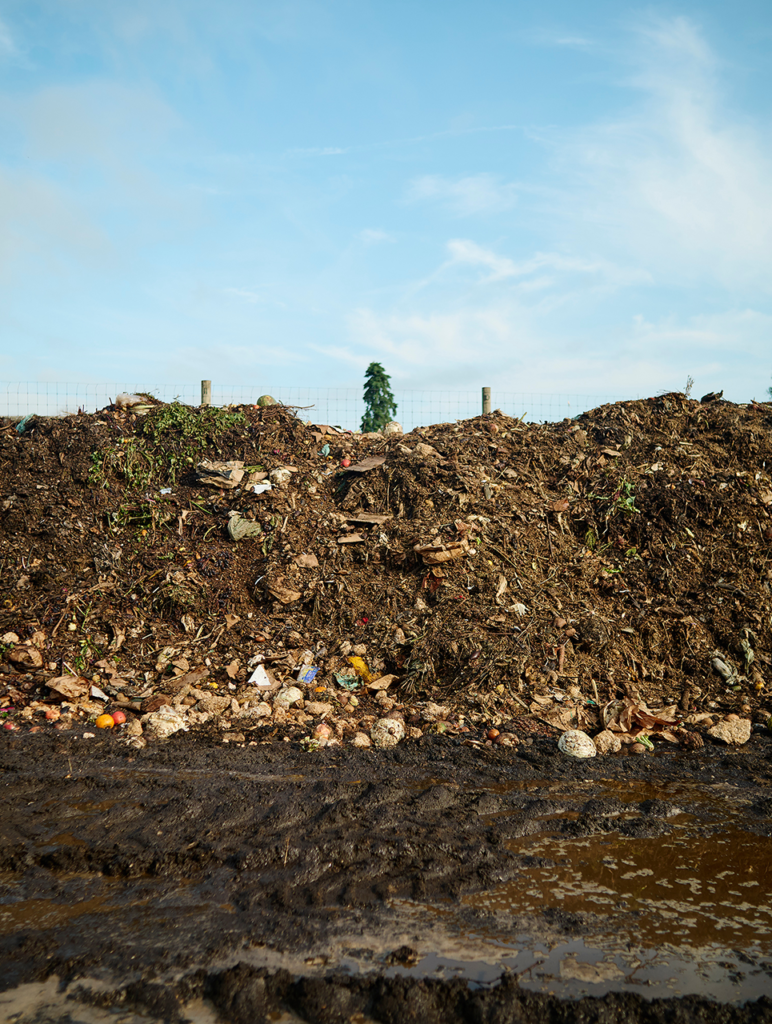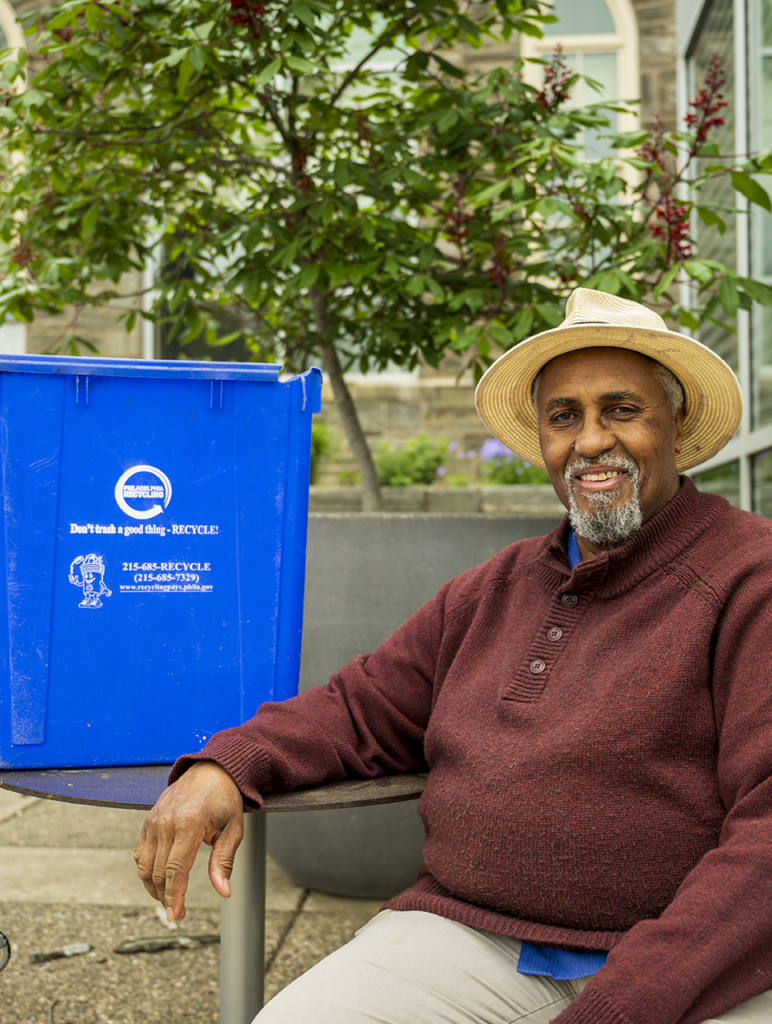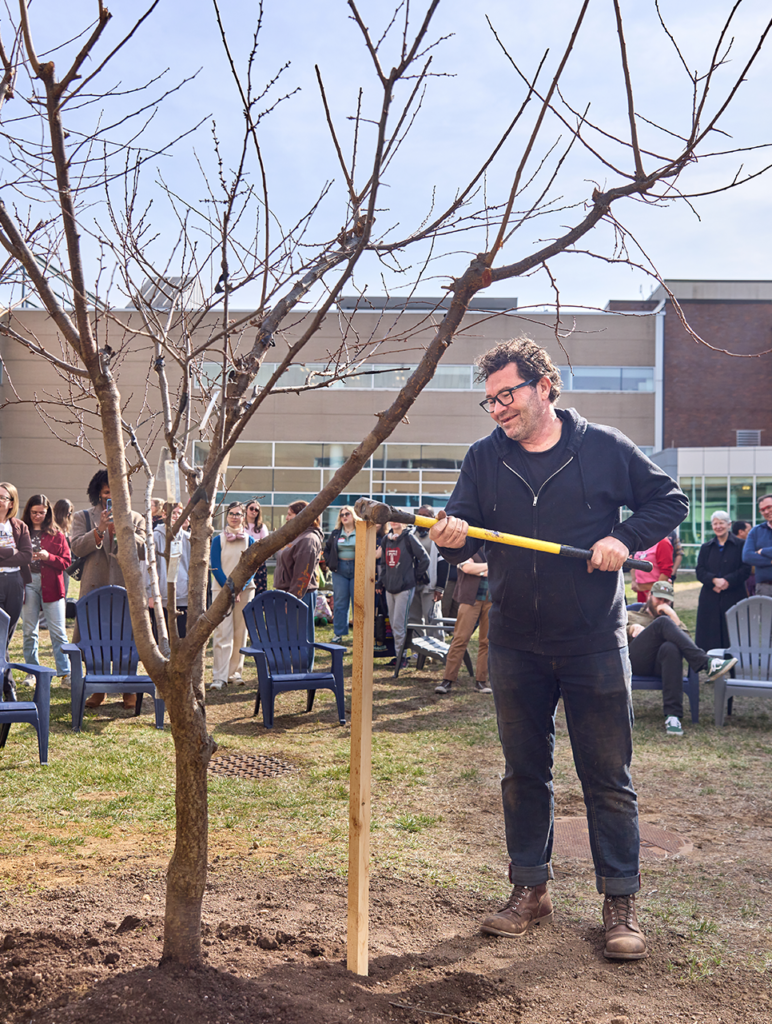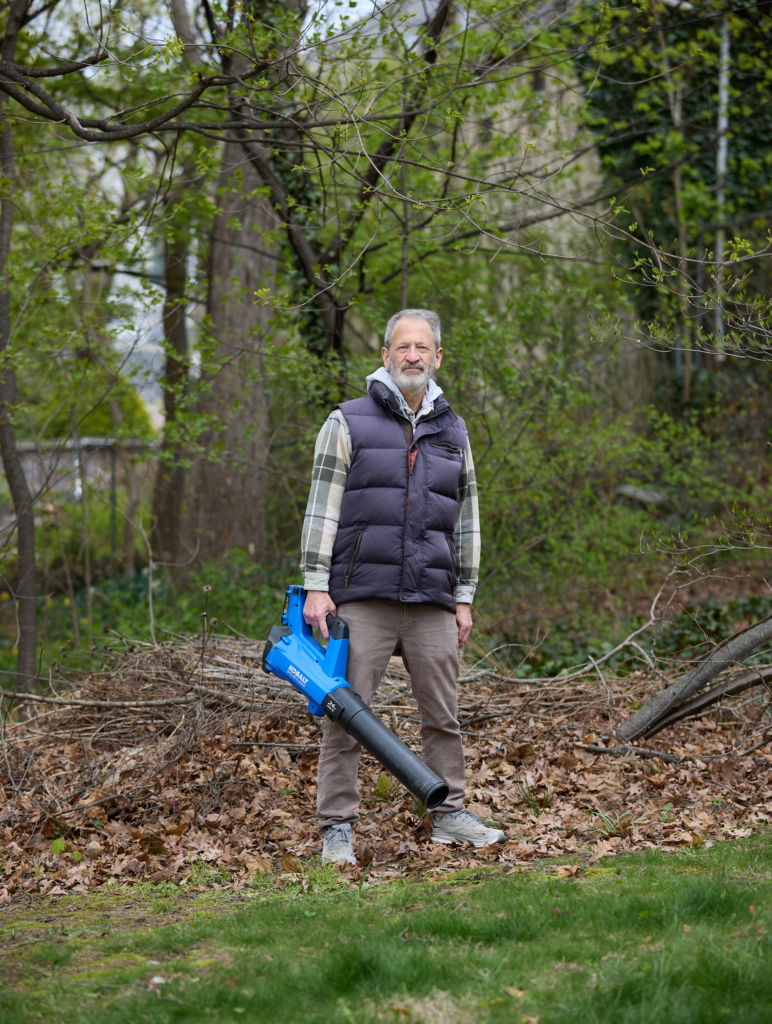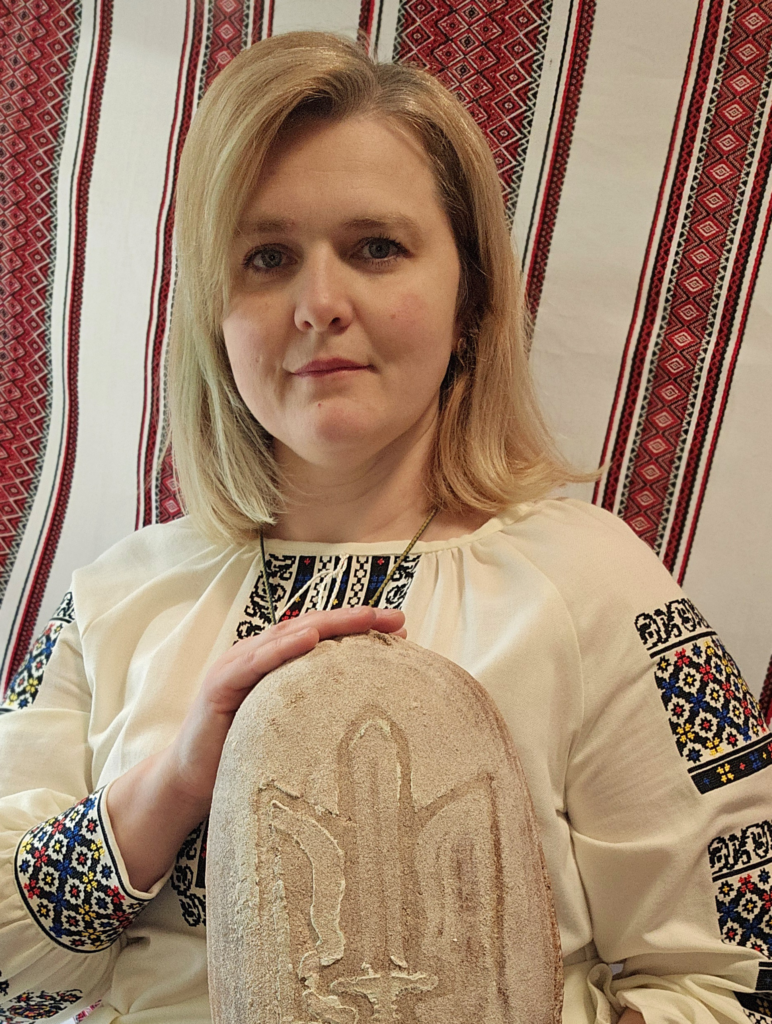On a windy March afternoon, Mark Berman poured a pile of sugar onto a piece of newspaper to feed one of his 13 bee colonies. Berman was providing the sugar supplement because the night temperatures were still dipping into the 30s, but there were signs that spring — and honey production — had begun. One hive over, worker bees came and went, bringing back pollen they had packed into flakes and stuck to their hind legs.
Honeybees are Berman’s passion.
A decade ago, the 54-year-old took a class with the Philadelphia Beekeepers Guild (PBG) that changed his life. Within about a year, Berman was overseeing two hives on his South Philly rooftop.
“I was just so taken by this demo that they gave,” he says. “It was a whole sensory experience — the smoke and the smell of the wood and the wax and the honey, and here we are in the city keeping bees, and it’s just fascinating to me.”
Berman owns Anna Bee’s Honey, a small business he named after his daughter, now 17. He sells raw, unfiltered honey extracted from his hives and beeswax candles that he makes in the basement of his Pennsport home. He sells his products online, in a few local shops and at festivals and pop-ups. He also hosts a popular “be a beekeeper for a day” experience that teaches attendees about honeybees and allows them to get up close and personal with the insects.
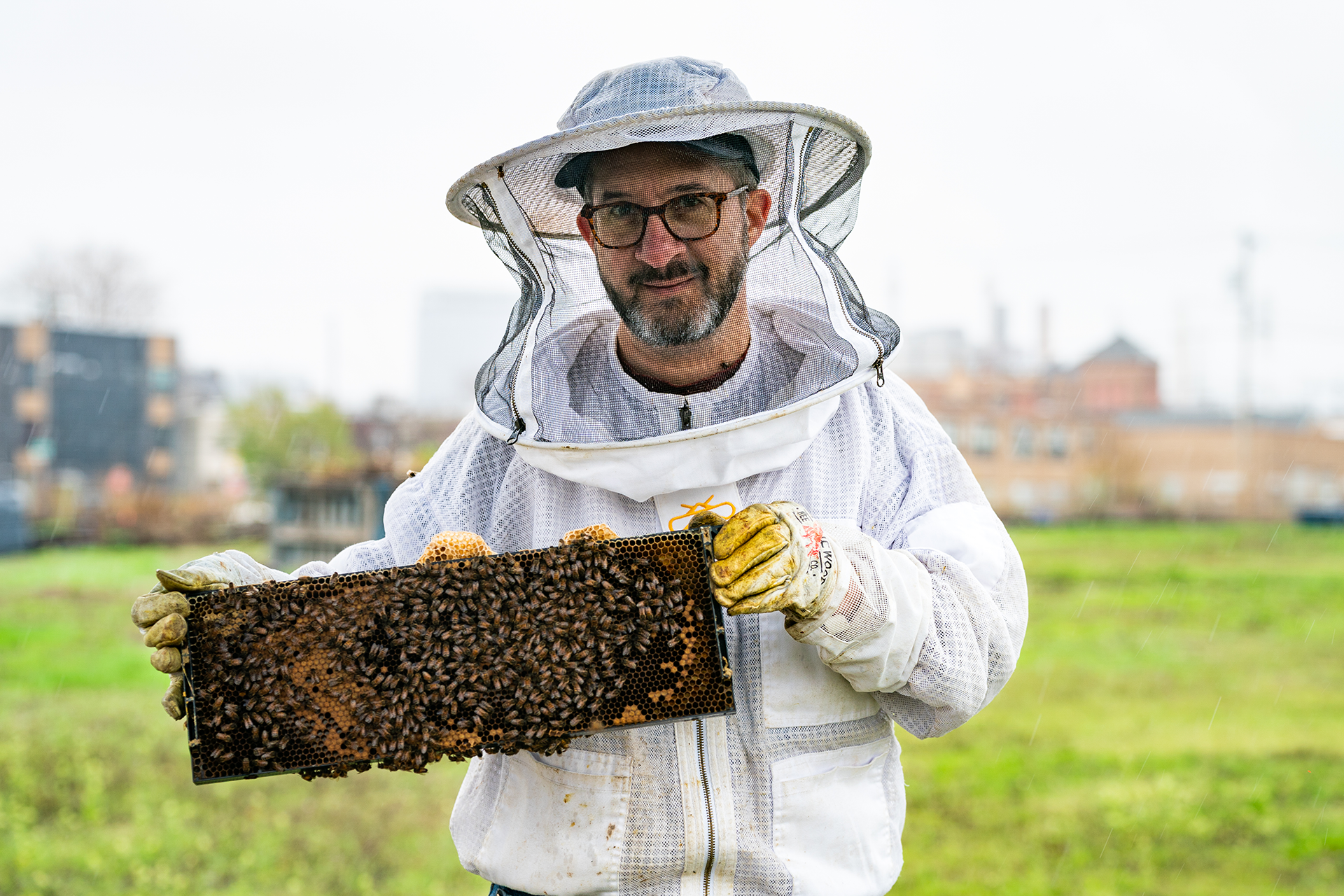
Berman’s current colonies are housed at Growing Together Community Garden in South Philadelphia, owned by the Church of the Redeemer Baptist. The construction of an education center relieved him of his previous plot at Bartram’s Garden, but the move was ultimately better for Berman and his bees: he finds they are healthier and happier in their new, sunny home.
“I have the space, the openness,” he says, “and the church has been extremely welcoming and happy to let me thrive here.”
Berman expanded from nine hives to 14 last spring, though he lost one over the winter. He has added hives by diverting swarms (when a group of bees breaks from the colony and starts a new one) and even sold a few to other local beekeepers. As Berman increases his hive count, he wonders what might be the best next step for Anna Bee’s. Last year, the bees produced 400 pounds of honey, a figure expected to increase after this season’s collections, which typically end in September. With such numbers, a partial shift to wholesale could make sense, Berman says. But his business is still both a one-man operation and a side gig; Berman has a full-time job as a creative director.
I never would have thought I’d be a beekeeper, but here I am. Now it’s something that’s ingrained in me.”
— Mark Berman, Philadelphia Beekeepers Guild
For now, he’s taking this season as usual, bringing in a few mentees from PBG to lend a hand and get an immersive learning experience. In fact, Berman now teaches for PBG, passing forward the knowledge and experience he has gained since his first lessons with the group a decade ago. That educational aspect is especially important to Berman’s business model.
“I’m kind of introverted. I wake up anxious about presenting to a group, but once I’m here doing it, I’m so in my element and feel so comfortable, and it’s so incredibly rewarding and relieving,” he says.
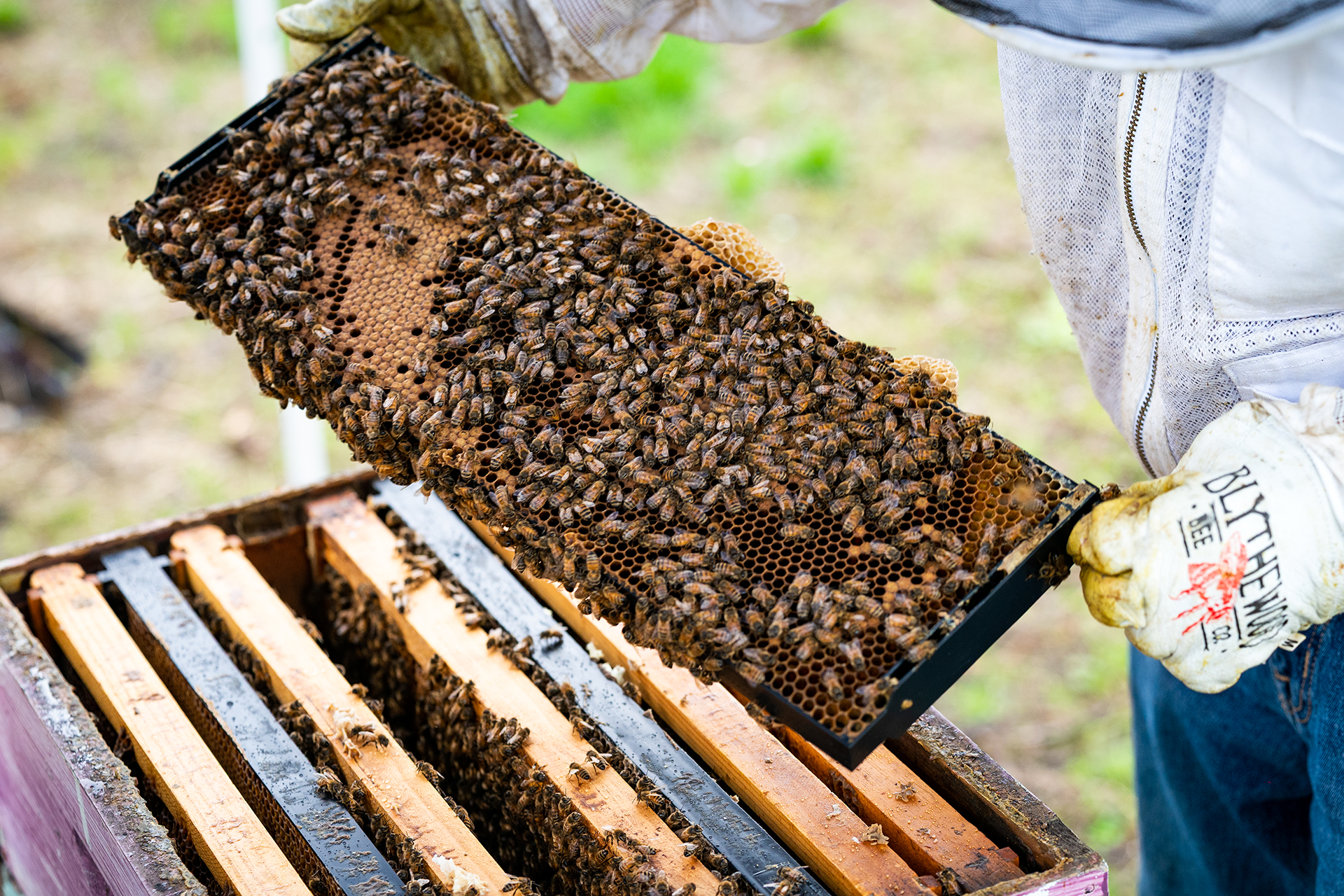
At a morning class just a few weeks after that windy March day, the hives get a post-winter inspection as 14 students clad in beekeeping suits look on. The lesson is focused on hive cleaning and treatment for the transition from winter to spring.
A woodsy smell lingers in the air as attendees take turns using a bee smoker, or smokepot, to blow smoke on the bees to discourage their activity and send them back into the hive while human hands inspect for signs of eggs, larvae, pests and swarming. Hundreds of bees buzz around the group.
The previous indicators of spring’s imminence have made way for full-blown production as new, white honeycombs fill the frames that Berman removes from the hive boxes. He tells his students that these can only be made with nectar, meaning that the bees have been busy gathering the substance and making space for more. Despite its urban setting, the plot’s location is actually ideal for honey production, sitting between the Schuylkill and Delaware rivers and the flora that thrive around those waterways.
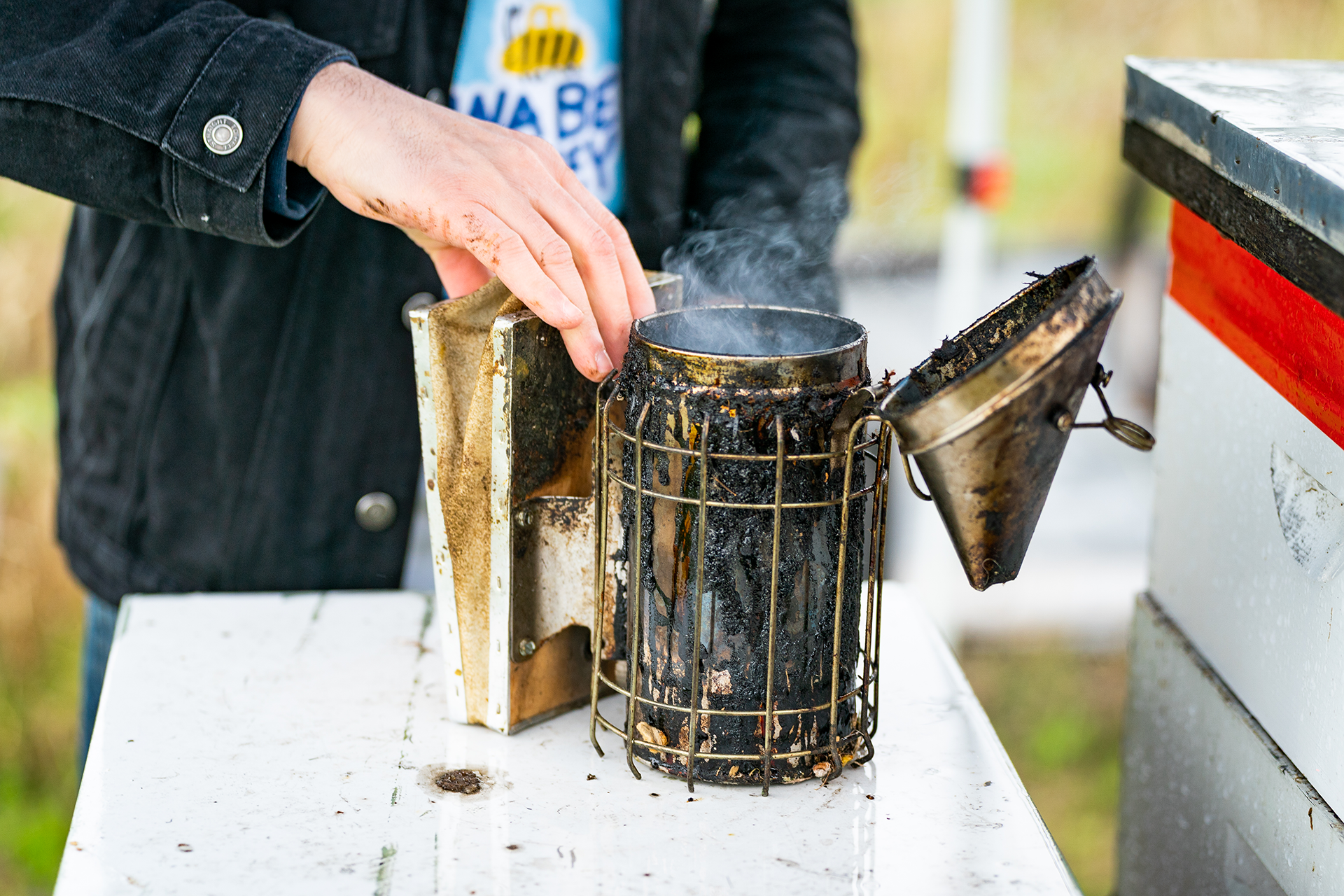
Many of the students are just beginning their beekeeping journeys, hoping to learn more before fully investing in the craft. PBG member Julia Murphy is taking classes with Berman and others to garner skills to assist with the beehives at The Spring Gardens community garden, where she works. Murphy says she’s glad PBG offers such educational opportunities.
“The world can never have too many beekeepers, right?” she asks. “We’re entering this really interesting historical moment in human history where we are going to need all hands on deck to help repair our planet and our agricultural system. We need to create these connections between people.”
That sentiment is why Berman and some other Philly beekeepers are in the early stages of developing a honey co-op to easily pool resources and knowledge. What Berman loves the most about the trade is that he’s always learning something and problem solving, and he says he can’t go back.
“I never would have thought I’d be a beekeeper, but here I am,” he says. “Now it’s something that’s ingrained in me.”


